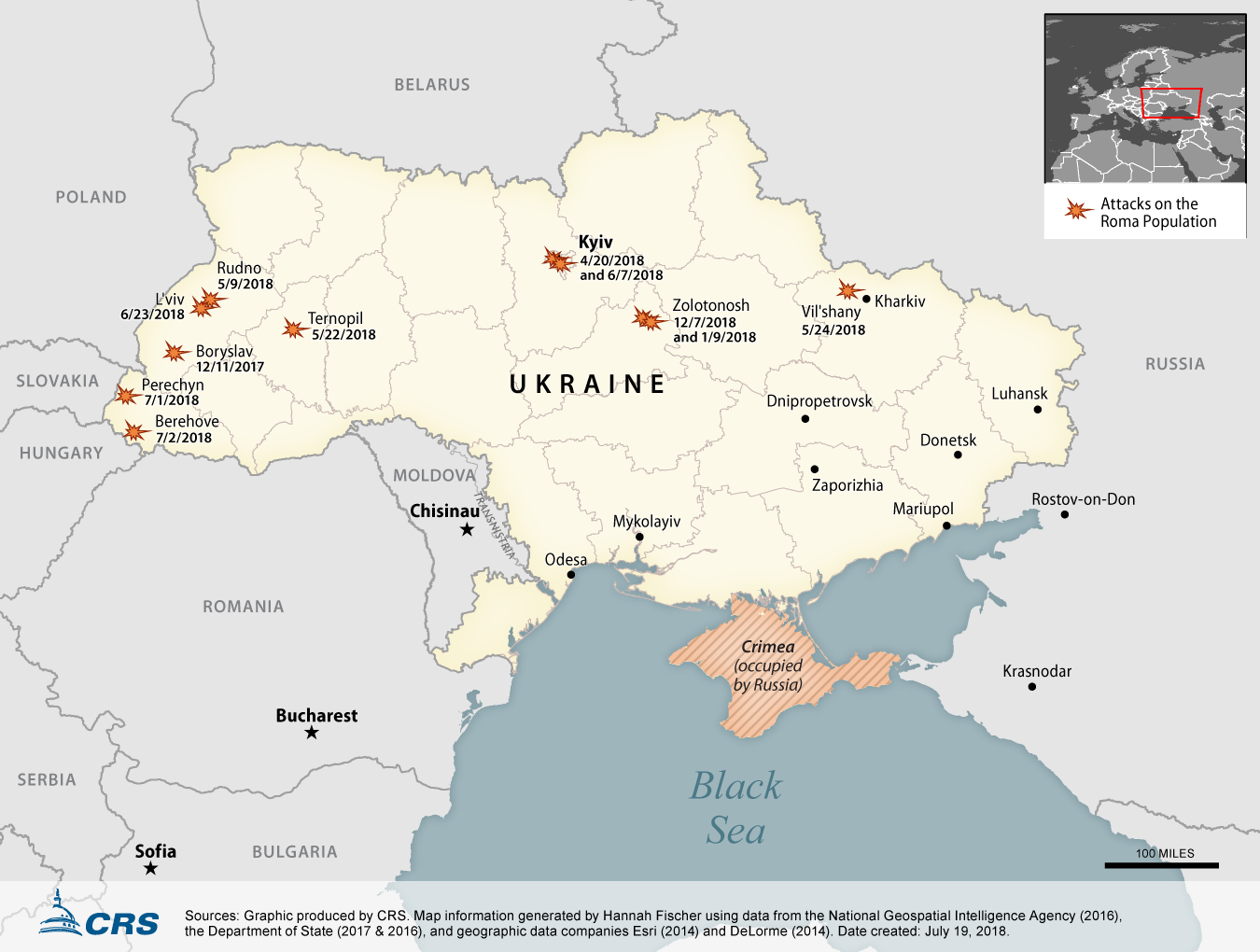Roma are the largest ethnic minority group in Europe and experience widespread discrimination and bigotry. Since the adoption of the 1990 OSCE Copenhagen Document, the U.S. Helsinki Commission has actively monitored and advanced the OSCE’s human rights commitments to Roma.
Over the course of 2018, attacks on Roma in Ukraine have escalated dramatically. Several of the mob attacks have been filmed and broadcast in an attempt to intimidate Roma communities. The attacks have destroyed property, injured many, and killed at least one.
Families, homes, and entire communities have been the target of these mob attacks. Since April, the Roma Coalition reported eight attacks against Roma settlements in Ukraine, and more than 150 people have fallen victim to these attacks. Although efforts have been made at the local, national, and international levels to counter this violence, much remains to be done.
Helsinki Commission Counsel on International Law Erika Schlager explained, “These messages were intended to stoke fear and sow interethnic tension … by engaging sooner rather than later, it makes it more likely that the government can take the actions necessary to put an end to this kind of violence.”
Halyna Yurchenko, coordinator of the NGO “Roma of Ukraine – TERNIPE,” added, “Most of the attacks were conducted on vulnerable groups quite below the poverty line and on those who live a traveling lifestyle. This traveling lifestyle is not a tradition but forced labor migration because of their difficult socio-economic situation.”
Zola Kondur, founder of the Chiricli International Roma Women’s Fund, highlighted some of the other challenges that Roma face in Ukraine. For example, many Roma lack civil registration documentation such as birth certificates, passports, and proof of residence, which can prevent them from fully exercising rights such as the right to an education.
Although the panel agreed that education is one of the most vital components for the success and integration of Roma, obtaining an education in Ukraine without such legal documentation is difficult; such documentation is required for a student to enroll.
“The obstacle is that parents have to provide a lot of documents to prove that their child can attend the school belonging to that district” said Kondur.
Even if a Roma child is enrolled successfully, Roma settlements are often situated far from schools; monthly contribution from parents; and they can face language barriers, and discrimination.
The combination of no education and civil documentation makes obtaining a job difficult or even impossible. Although there are no official statistics for the current rate of unemployment of Roma, according to estimates from NGOs, only 38 percent of Roma are employed.
Oskana Shulyar, Deputy Chief of Mission at the Embassy of Ukraine to the United States, acknowledged the grave humanitarian situation affecting Roma and explained how the Ukrainian government’s continuously tries to assist one of its nation’s most vulnerable groups.
“Ukraine is strongly committed to principles of tolerance and nondiscrimination of all ethnic groups, including the Roma community,” she said.
Alongside the Ministry of Internal Affairs of Ukraine, law enforcement, and national security, grassroots organizations and local governments are working to create a safer community for Roma.
Shulyar stated, “We need the continuous support from our partners, including the United States … to support Ukrainian reforms.”
Suggestions by the panelists to improve the situation of Roma in Ukraine and counter the increasing attacks on this vulnerable minority included better monitoring and assessment of hate crimes in Ukraine; careful identification of hate as a motive so that government can properly identify and counter increases in these crimes; and more effective efforts to prosecute and convict perpetrators of violent hate-motivated acts. Panelists also recommended that individuals or groups implicated in such violence be barred from state funding, and that Roma should be included in the policy making process, especially if there is consideration of updating Ukraine’s 2013 strategy for inclusion in light of the recent attacks.

Click here to see the full timeline of the attacks.




